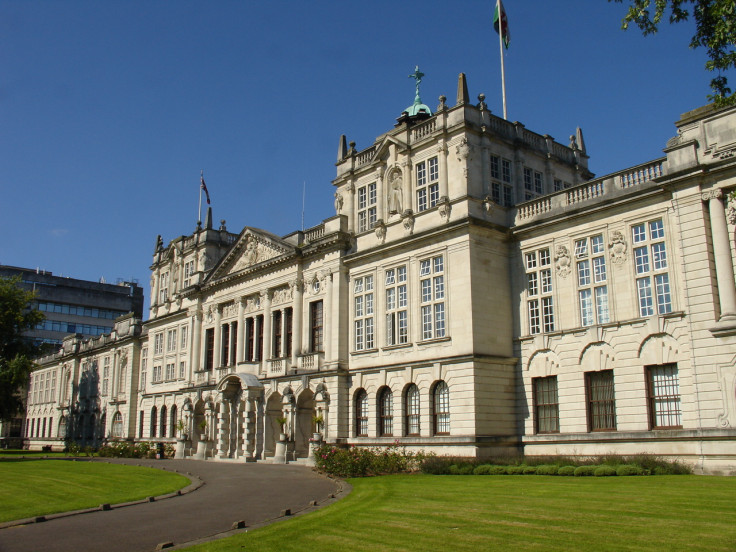What Does New Study Say About GB News Fans' Mistaken Views on UK Migration?
Cardiff study finds 84% of GB News viewers wrongly believe UK migration is rising.

A new study from Cardiff University uncovered profound misconceptions among GB News viewers regarding UK migration, revealing that 84 percent erroneously believe net migration is rising despite official figures showing it nearly halved to 431,000 last year.
Amid intensifying debates on media impartiality, this research demonstrates how broadcaster choice can affect public perceptions, with GB News audiences harbouring the most prevalent migration-related inaccuracies compared to other channels.
The findings amplify demands for tighter regulation, stressing the urgency to safeguard accurate immigration narratives and rebuild trust in British broadcasting.
The Study's Key Findings
Led by Prof Stephen Cushion under Cardiff University's School of Journalism, Media and Culture, the study was conducted through a YouGov representative poll of about 2,000 individuals online on 5 and 6 October 2025. It explored attitudes towards impartiality in news and current affairs. Crucially, 84 percent of regular GB News viewers mistakenly believed net migration had increased, clashing with official statistics showing a drop to 431,000.
The survey also found 51 percent of the public oppose politicians hosting current affairs shows, with 29 percent in favour. When excluding undecided respondents, disapproval climbs to 64 percent. GB News trust rating hovers at 18 percent, far behind the BBC, which remains the most trusted outlet. Prof Cushion commented, 'We would urge Ofcom to reopen its consultation on this and widen its remit to ask whether the public actually wants politicians presenting non-news programming.'
These findings highlight how media biases can fuel migration myths, particularly as immigration commands political spotlight. Fact-checking organisation Full Fact has previously noted pervasive overestimations of migration levels. A 2016 Cardiff study also noted aggressive portrayals of migrants in UK media, often framing them as threats to welfare, which may contribute to current misconceptions.
How Migration Views Vary Across UK Media
The study compared migration perceptions by broadcaster, revealing GB News viewers had the highest rate of misinformation at 84 percent, followed by ITV at 71 percent, BBC at 62 percent, and Channel 4 with 51 percent. This disparity accentuates media's power to influence public opinion, with GB News linked to the most pronounced inaccuracies about falling migration rates.
Overall, 49 percent of respondents trust TV and radio news owing to impartiality rules, compated to 7 percent for social media and 28 percent for online or print mediums. Culture Secretary Lisa Nandy stated, 'The public were right to be concerned about elected politicians playing the role of news presenters,' calling the blurring of opinion and fact 'troubling.'
In a post on X, Dave Lawrence observed: 'This is because of the fake news, gas lighting and dog whistles 24/7'.
This is because of the fake news, gas lighting and dog whistles 24/7
— dave lawrence 🐟🐟🐠 (@dave43law) October 15, 2025
GB News viewers more likely to wrongly believe net migration to UK rising, study findshttps://t.co/PYUOxbDmbp
These contrasts reveal channel choice affects UK migration insight. Conventional broadcasters appear to foster more accurate views amid declining net migration. Age also plays a role: 76 percent of 50-64-year-olds endorse regulations, compared to 57 percent of 18-24s. A University of Birmingham study further confirms media's swift influence, noting that coverage of small boat crossings can instantly alter public opinion on immigration.
Implications for UK Media and Migration Discourse
The results have intensified scrutiny of broadcasting regulations. With 64 percent of resolved respondents rejecting politicians' programme leadership, pressure mounts on Ofcom to revisit its guidelines. GB News CEO Angelos Frangopoulos responded, 'The channel has never and does not use politicians to present news programmes,' underscoring the distinction between news and current affairs.
As immigration continues to dominate political discourse, these misconceptions risk distorting public discussions, even as actual migration figures decline. Support for impartiality differs by age, showing generational divides.
The study pushes for stronger safeguards to dispel migration misinformation, promoting fact-based dialogue and curbing media polarisation in 2025. This could mould future policies, enhancing accuracy amid a changing media landscape, echoing prior Cardiff research on source biases.
© Copyright IBTimes 2025. All rights reserved.





















